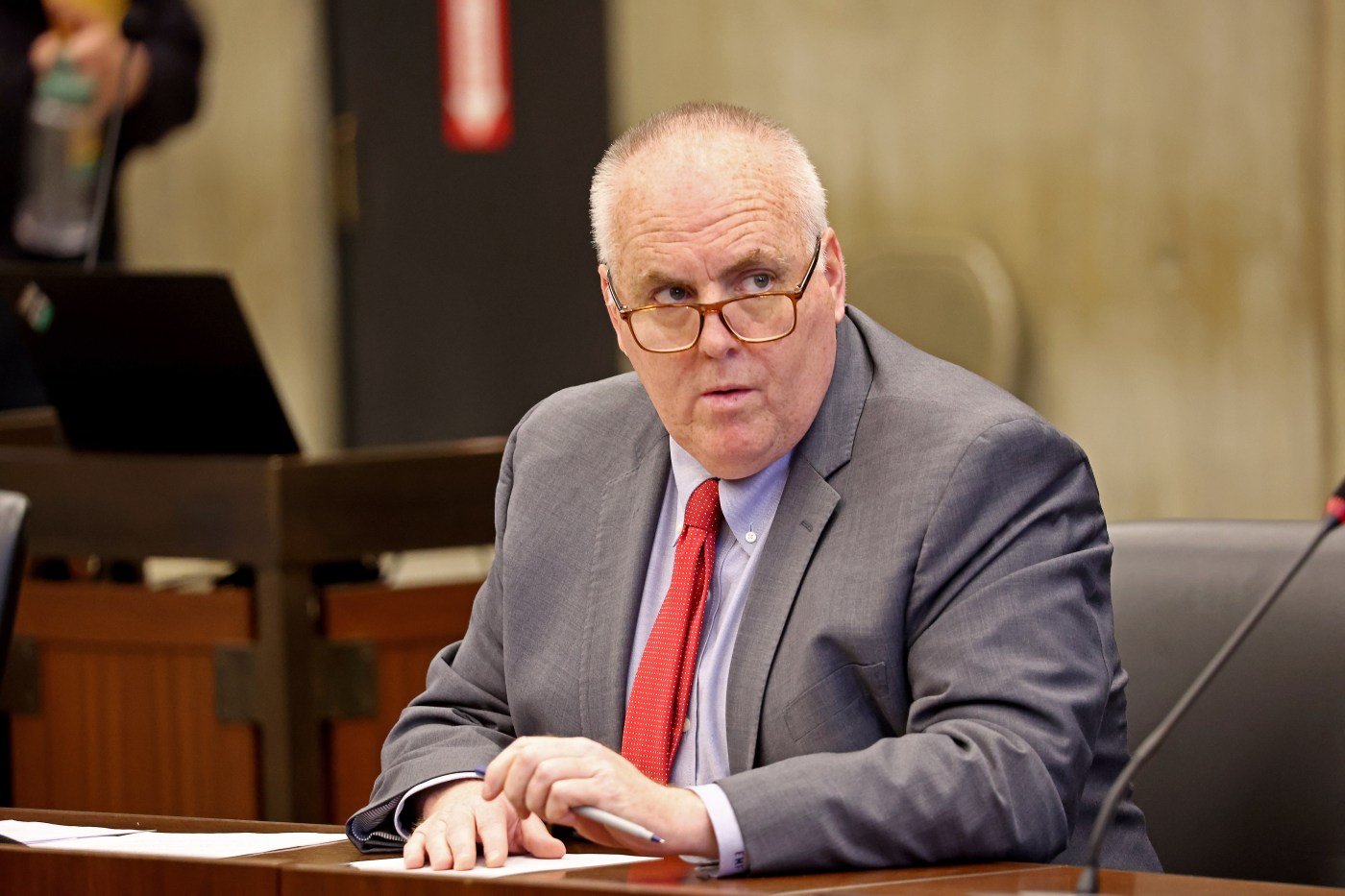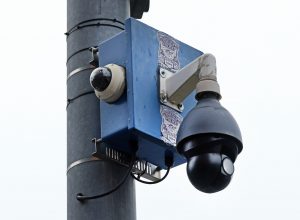
Boston city councilor opposes Mayor Wu’s plan to raise commercial tax rates
Boston City Councilor Ed Flynn came out in opposition to the mayor’s proposed plan to raise property taxes on businesses beyond the state limit, saying that such a move would negatively impact an already struggling downtown office market.
Flynn, per a statement from his office, chose to oppose a home rule petition Mayor Michelle Wu filed with the City Council this week after speaking with business leaders, residents, and the authors of a recent report that warned the city’s eroding commercial tax base could lead to a $1 billion-plus budget gap in five years.
Wu says the measure, which Council President Ruthzee Louijeune referred to the body’s government operations committee at Wednesday’s meeting, is necessary to drive down a significant increase in residential property taxes that is likely to occur as a result of declining commercial property values due to empty office buildings. She insists commercial property taxes would still decrease, but not by as much.
“Councilor Flynn, the District 2 councilor who represents parts of downtown Boston and the South Boston waterfront, is concerned about whether an increase in commercial property taxes will negatively impact the already struggling downtown office market, where 20.1% of offices have become vacant with post-pandemic challenges and shifts to remote work,” his office stated Wednesday.
His office added that Flynn, the body’s president last term, is “alarmed about reports of exacerbating current issues in an already struggling development and real estate industry, with the potential to lead to an urban doom loop — where cuts to city services would make Boston less desirable and further drive down property values.”
The councilor’s statement adds that Boston has seen “tremendous growth” over the past two decades, but has also grown “increasingly reliant” on property taxes, which now generate 75% of the city’s annual budgetary revenue, 36% of which comes from commercial property taxes.
Related Articles
Boston city councilors press for action after BPS leaves varsity baseball team without transportation
Mayor Wu signs ordinance creating first city-run planning department in 70 years
Soccer stadium in Everett could bring foot traffic, congestion to Boston, officials say
Boston city councilor calling for attendance accountability has missed the most meetings, minutes show
Temporary safety upgrades coming to South Boston intersection where 4-year-old was killed
Flynn said his opposition was informed, in part by speaking with representatives from the Center for State Policy Analysis at Tufts University, which along with the Boston Policy Institute, issued a report last month that projected the value of office space is expected to decline 20-30% by 2029.
That, the report contends, will leave the city with a cumulative revenue shortfall of $1.2-$1.5 billion over the next five years, and will result in a “new normal” where annual tax collections starting in 2029 will be roughly $500 million below the current trend.
Flynn contends that his opposition to the mayor’s home rule petition, or “any measure to raise commercial property taxes,” builds off of his prior Council actions intended to address downtown office vacancies, consider changes to a program that seeks voluntary payments from tax-exempt nonprofits to raise revenue, and crack down on remote work for city business to bring foot traffic back to the area.
“In the final analysis, whether it is popular or not, our city can no longer afford all sectors of our economy to work from home indefinitely and continue to contribute towards falling commercial property values,” Flynn said in a statement. “Now is not the time to increase commercial or residential property taxes.”
Whether the conservative-leaning councilor’s opposition will be matched by the rest of the majority-progressive Council remains to be seen. Flynn was only joined by Erin Murphy, another moderate Democrat, in voting against a resolution last week that reaffirmed the body’s support for a separate mayoral home rule petition, to impose a 2% real-estate transfer fee on big-ticket transactions over $2 million.
Pending on Beacon Hill, the push for a new tax, which Wu says would ease the city budget’s reliance on property taxes, has drawn the ire of industry groups.
The mayor’s petition, if approved by the City Council and state lawmakers, would provide a statewide option allowing municipalities to shift more of the tax burden from residents to businesses, exceeding the state cap of 175% up to 200% in the next fiscal year that begins July 1.
Mirroring what was proposed by former Mayor Thomas Menino in late 2003 and signed into law early the next year by Gov. Mitt Romney, the petition would provide a tiered shift of the commercial rate — from up to 200% of the residential rate in fiscal year 2025, 197% in FY26, 190% in FY27, and 183% in FY28 before returning to the standard state limit of 175% in FY29.
The proposal has prompted criticism from the business community, but Wu insists there will be no harm to the commercial sector, saying those taxes will still decline, and the measure is not intended to generate additional revenue.
During a press briefing on her petition last Thursday, Wu said, “What we are trying to avoid here is a sudden dramatic and concentrated shock to residential property owners, which could hurt residents and businesses alike.”


